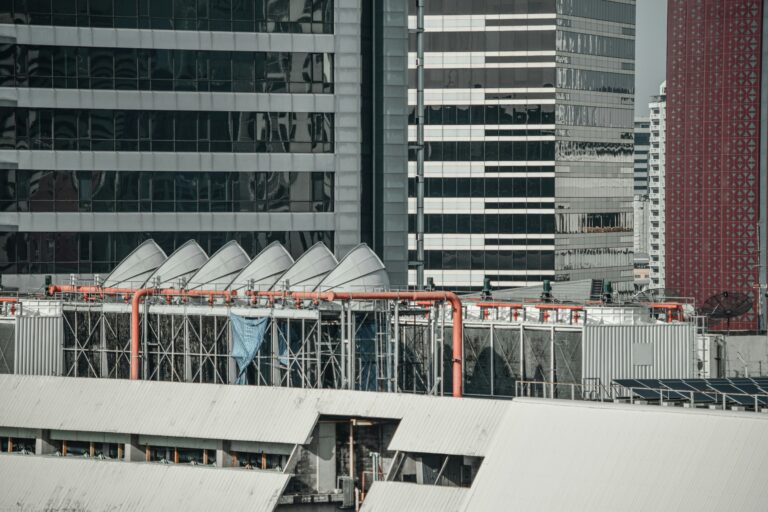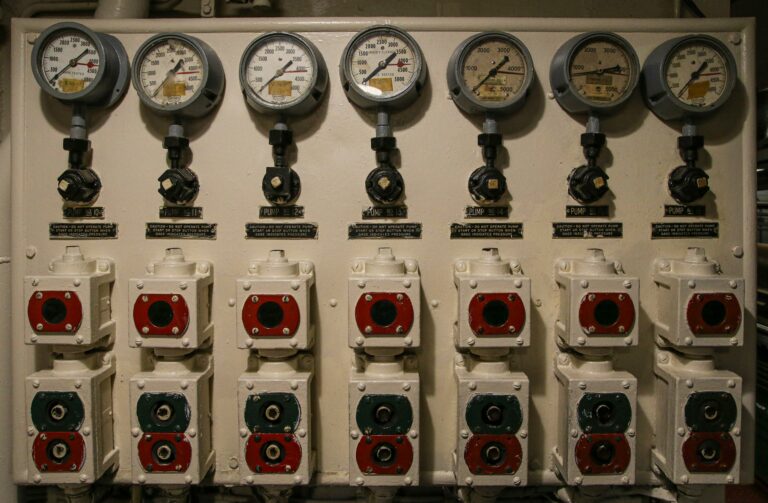List of HVAC Companies in the USA: Tips to Find the Best Fit for Your Project in 2025
The HVAC companies play a vital role in maintaining a healthy and comfortable indoor environment.
Read ArticleMaintaining the perfect temperature for your home, regardless of the weather outside, is no longer a luxury but essential to modern living. Be it the chilling weather outside or scorching summers, residential HVAC design systems can come to the rescue. Top-rated design services today ensure effective and efficient equipment that can transform your living space into a comfortable haven without burning a hole in your pockets.
This blog aims to offer insights into decoding the essential elements of house HVAC design and help you find the best providers of allied services.
One of the core functions of an HVAC system is to maintain a comfortable climate indoors. This works by exchanging heat in and out of your house to ascertain high air quality and cool the indoor space. For creating cooler indoors, the process involves the play of refrigerant that circulates between the indoor and outdoor units to absorb indoor heat and release it outdoors. To generate warmer temperatures indoors during winters, the system reverses this process by hauling the heat from outdoor air and transferring it inside the house to create a warm environment. This process employs furnaces that can generate heat with electricity and circulate it throughout the house via the HVAC ductwork.
Factors that influence your home’s heating and cooling needs include:
Whether building a new residence or refurbishing an existing home, it is important to understand what goes into a house’s HVAC design to make the most of it. This will enable energy-efficient heating or cooling aligned to your contemporary residential needs.
Appropriately sized heating and cooling systems
Dependable house HVAC design services always insist upon calculating the heating or cooling load before suggesting a system. This would typically consider the size of your home, its layout, energy efficiency requirements, space coverage etc. This basic information is significant in recommending the right size of cooling or heating systems for your home.
Both undersized and oversized HVAC systems can impact energy costs, comfort and aesthetics of your house. Hence, your provider must consider sizing as the first step of installing a residential HVAC system. Calculating your home’s heating and cooling needs determining insulation quality, measuring square footage, checking window types and understanding the local climate.
Your HVAC design service provider should conduct an evaluation of your home structure to offer accurate estimations for precise drafting of a centralized air framework.
Effective ventilation system
The quality of air in the house could largely depend on the prevailing ventilation system. After all, you wouldn’t want to live in a space without proper ventilation as it is neither comfortable nor healthy. An appropriate HVAC system offers a viable ventilation mechanism that can refresh the air locked within your four walls and simultaneously transfer heat energy between parallel air streaming systems to increase comfort.
Proper air distribution, dehumidificationand purification
Ideal HVAC systems are designed with appropriate air distribution mechanisms where the ducts, vents and registers can optimize airflow to render efficient temperature regulation and comfort. A reliable HVAC service provider will ensure that each room in your house has grilles connected to grilles or registers connected to ductwork. It is desirable to install an HVAC system that can purify the indoor air to improve its quality and also keep the humidity levels in check.
Your HVAC design should be competent to remove pollutants and other harmful substances such as carbon monoxide. A proper filtration mechanism to improve the ventilation standards should make a core element of HVAC system in your house.
Temperature regulation
Installing a viable HVAC system is integral to your house plan. This makes it indispensable to choose a design service that can take care of your air conditioning and heating needs during summer and winter months respectively. Understanding the environment can determine the proper limits of cooling, heating, and humidification needs as it enables the implementation of a befitting HVAC framework.
With the configuration of HVAC, you can enjoy better air quality and limit allergens and impurities through air filtration mechanisms. Modern systems are designed to enable remote adjustment of programs with smartphones and tablets for seamless and effective home climate control.
HVAC design processes are based on the space and building needs of a house. HVAC systems can largely impact the building’s design and structure as incorporating ducts, vents etc. requires appropriate planning to befit the architectural layout. HVAC design services need to understand the building requirements and follow health and safety regulations while assuring energy efficiency and sustainability.
Here are some of the vital aspects of residential HVAC system design services you must look for before getting it installed in your house.
Sustainability
Sustainability is an important element of HVAC designs in modern homes. Such practices reduce energy consumption and promote a green environment. Advanced architectural plans ensure to design of HVAC systems with sustainable equipment. These include variable refrigerant flow systems smart thermostats etc. Solutions that can add to the sustainable use of solar panels as they reduce utility costs while maximizing energy efficiency.
While solar panels in residential HVAC systems make a smart way to harness renewable energy for heating and cooling, geothermal heat pumps are also emerging as an efficient mechanism for providing efficient heating and cooling. Although geothermal systems cost more, they can significantly lower energy costs in the long run and provide environmental benefits.
Air distribution
House HVAC design services should feature an air distribution system with the circulation of appropriate airflow and temperature control around your house. You can discuss the load needs of your home with the service provider and ensure that safety and security needs are adhered to in the design process.
Integration
Your home HVAC system should offer a centralized control. This will help you monitor and optimize energy levels. Smart devices can be used to connect with the systems. This requires compatibility of the heating, air conditioning and ventilating systems with your latest smart devices.
Automated systems that integrate HVAC systems with other home functions like security, surveillance, and lighting are becoming increasingly common in residences. This smart integration allows to regulation of temperatures and lighting around the clock. AI integration enables a hands-free HVAC system when teamed with voice-controlled assistants like Alexa, Siri and their like.
Customization
Your HVAC design service should consider zoning to cater to varying needs across rooms and floors in your house. Such zoning systems help meet the customized requirements of different spaces in your home. So, you can conveniently control the temperature in different areas while substantially saving energy and reducing carbon footprint.
Compliance
Your home HVAC system must comply with the industry standards. HVAC contractors have to follow regulatory frameworks and guidelines to work on home projects. All local regulations and area codes should be taken into consideration while installing systems in your residence. This will help with proper installation, durability and high functionality of your HVAC system.
Regular Maintenance
House HVAC design services must include regular maintenance and upgrades. Whether it is cleaning the air filters, replacing them, conducting tune-ups, or inspecting leaks in the ducts, it is essential to have a routine for system maintenance. This will not only improve the system’s functional efficiency but also ensure safety.
HVAC ducts accumulate dust and over time such pollutants can also cause mold development to obstruct airflow. Professional services ensure well-maintained HVAC systems with regular cleaning. This improves the quality of indoor air as well. Moreover, inspecting ducts can determine leaks and have them sealed and bring down energy bills.
Make sure you upgrade your HVAC systems from time to time. HVAC technology keeps evolving and it is best to attune to newer models to ensure highly efficient systems.
Hiring a licensed service provider
You must appoint a licensed contractor for getting your HVAC system designed. Professional designers comprise experienced engineers and qualified architects who can plan, manage and design complex HVAC systems based on energy-efficient and sustainable values.
Whether it is the installation of your heating or air conditioning systems, reputable contractors can assure tailored solutions by understanding the needs of every unique space. A trustworthy HVAC design service provider will send a team to conduct an extensive assessment of your home before recommending the most suitable system attuned to your house’s needs. Certified professionals can implement flawless installation ensuring perfect operation of your HVAC system. Appropriate installation can guarantee maximum performance, extend its longevity and assure satisfaction.
Concluding Thoughts
By prioritizing the need to carefully select a residential HVAC design service, you can ensure the installation of customized equipment and enjoy a sustainable living environment without leaving a heavy carbon footprint or pinching your wallets. Dependable HVAC design services can provide options that integrate renewable energy sources to provide efficient home insulation coupled with regular maintenance.

The HVAC companies play a vital role in maintaining a healthy and comfortable indoor environment.
Read Article
The dynamism and revolution in HVAC design services USA have witnessed significant development, involving innovative technology and software applications.
Read Article